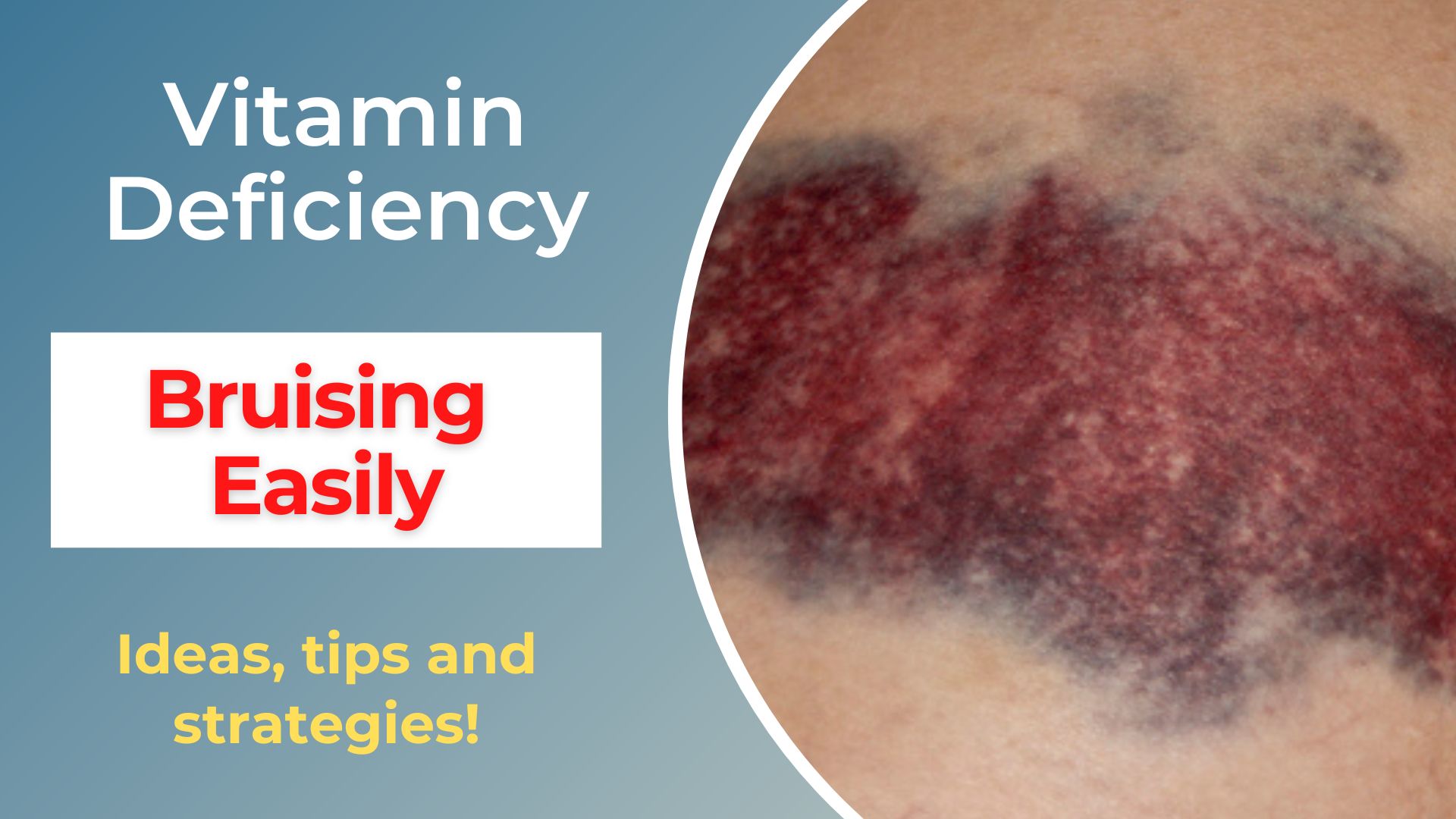Do you often bruise easily with no apparent explanation? You may suffer from a vitamin K deficiency.
Vitamin K is a fat-soluble nutrient that is essential for blood clotting and helps strengthen the walls of the capillaries so they will be less prone to breakage.
Without enough vitamin K, your body cannot form blood clots properly, which could lead to easy bruising.
In this article, we’ll discuss the symptoms of vitamin K deficiency and how you can correct it!
What is a bruise?
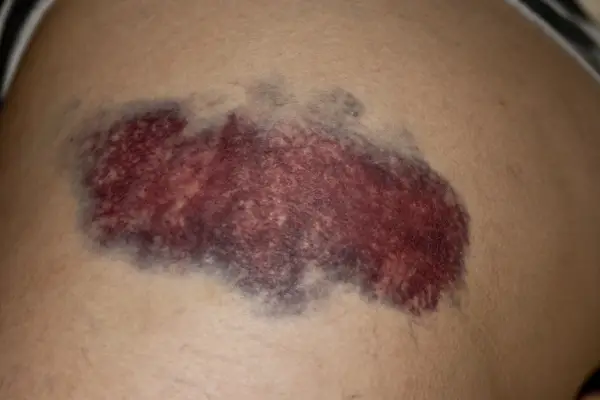
A bruise is a common injury that occurs when small blood vessels under the skin tear or rupture.
Sometimes bruises can cause little or no problems, but they can signal an infection.When this happens, blood leaks into the tissues and causes the area to turn black and blue.
When your skin gets redder or darker and if you are worried about your health, then you should consult your physician first.
Most bruises are not cause for concern and will heal on their own within a few days two weeks.
However, if you find you are bruising more easily than normal or have large bruises that take a long time to heal, it could be a sign of vitamin K deficiency.
According to a study in 2022, “Vitamin K deficiency can contribute to significant bleeding, poor bone development, osteoporosis, and increased risk of cardiovascular disease”.
Blood vessel walls need vitamin K to remain strong and less prone to breaks. If you are not getting enough vitamin K, your blood vessels may become weak and more susceptible to injury.
However, you could also be deficient in other vitamins which we’ll talk about below.
Other Vitamin K Deficiency Symptoms
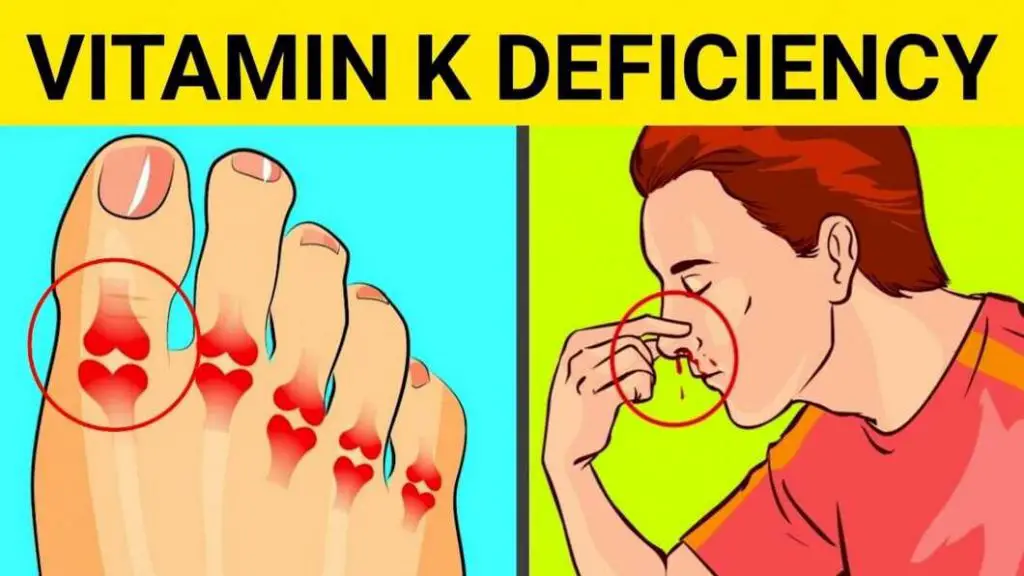
Easy bruising and excessive bleeding are the most common symptoms of vitamin K deficiency. You may also notice that your gums bleed more easily than normal or that you have nosebleeds.
If the vitamin K deficiency is severe, you may experience more serious symptoms, such as:
- heavy menstrual bleeding
- blood in your urine or stool
- prolonged bleeding after surgery or injury
- joint pain
- bone pain
Liver Disease
Liver disease is another serious health problem and is not easily treated, which causes pain and discomfort.
In order to help your liver avoid blood clots and infections, the liver produces essential proteins that help to stop blood clots. Disruption in normal liver functions decreases protein levels.
Bleeding Disorders
Vitamin K also works with other vitamins, minerals, and nutrients in the body to help blood clot. A vitamin K deficiency can lead to a bleeding disorder.
If you have a vitamin K deficiency, you may experience:
- nosebleeds
- heavy menstrual bleeding
- excessive bruising
- blood in your urine or stool
- prolonged bleeding after surgery or injury
Bruise intense workouts
If you are vitamin K deficient, you may bruise more easily with intense workouts.
Vitamin K is important for helping the blood clot and repairing damaged blood vessels.
When you exercise intensely, your muscles can damage small blood vessels.
If you don’t have enough vitamin K, these tiny injuries can cause bruising.
Intense workouts can also lead to vitamin K deficiency because they can cause gastrointestinal bleeding.
This is when blood leaks from the intestines into the stomach and then out of the body onto the stool.
You may not notice this type of bleeding, but it can deplete your vitamin K stores.
Low platelet count
Platelets are cells in your blood that help with clotting.
A vitamin K deficiency can cause a low platelet count, which can lead to bruising.
If you have a low platelet count, you may also experience:
- nosebleeds
- heavy menstrual bleeding
- excessive bruising
- blood in your urine or stool
- prolonged bleeding after surgery or injury
You may also need to take vitamin K if you are taking a medication that interferes with vitamin K absorption.
Causes of Vitamin K Deficiency
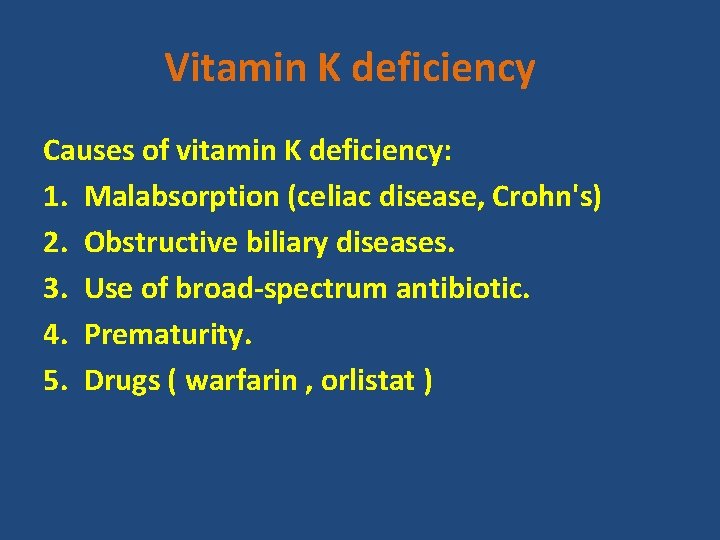
There are a few different reasons someone might develop a vitamin K deficiency.
One of the most common causes is because of taking certain medications that interfere with vitamin K absorption. These medications include:
- antibiotics
- blood thinners
- cholesterol-lowering drugs
Another cause of vitamin K deficiency is malabsorption, which is when your body cannot absorb vitamin K from the food you eat. This can be because of several different conditions, such as:
- celiac disease
- chronic liver disease
- cystic fibrosis
- pancreatitis
Blood disorders
Certain blood disorders can also lead to vitamin K deficiency.
For example, people with hemophilia have a condition that prevents their blood from clotting properly.
This can cause them to bleed for a longer time than usual after an injury and to bruise more easily.
If you have a blood disorder, then your vitamin K deficiency is often treated with vitamin K supplements.
You will probably need to take these supplements for the rest of your life.
Also, you may need to take vitamin K if you are taking a medication that interferes with vitamin K absorption.
You may also need to take vitamin K injections.
Diabetes
Diabetes can also lead to vitamin K deficiency.
High blood sugar levels damage the small blood vessels in your body, which can lead to gastrointestinal bleeding.
This type of bleeding can deplete your vitamin K stores and cause bruising.
Diabetes is also a risk factor for liver disease.
As mentioned earlier, liver disease can lead to vitamin K deficiency because it interferes with vitamin K production.
If you have diabetes, it’s important to monitor your vitamin K levels and take supplements if necessary.
Drinking too much
Drinking too much alcohol can also lead to vitamin K deficiency.
Alcohol abuse is a risk factor for liver disease.
As mentioned earlier, liver disease can lead to vitamin K deficiency because it interferes with vitamin K production.
If you drink excessively, it’s important to monitor your vitamin K levels and take supplements if necessary.
Vitamin K deficiency is a serious condition that can lead to bruising, as we mentioned earlier.
What nutrient deficiencies are responsible for bruising?
There are several nutrient deficiencies that can be responsible for bruising.
These include vitamin K, vitamin C, and vitamin D.
If you think you may be deficient in any of these vitamins, it’s important to see a doctor and get tested.
You may also need to take supplements to correct the deficiency.
Low in Vitamin C
Vitamin C is important for the production of collagen.
Collagen is a protein that helps keep your skin healthy and strong.
If you don’t have enough vitamin C, your skin may become thin and weak. This can make it more susceptible to bruising.
You need vitamin C to produce collagen.
If you don’t eat enough foods that are high in vitamin C, you may develop a deficiency.
Unimpeachable sources of vitamin C include:
- oranges
- lemons
- limes
- strawberries
- red and green peppers
Low vitamin D
Too little sun exposure can also lead to vitamin D deficiency.
If you don’t spend much time in the sun, it’s important to monitor your vitamin D levels and take supplements if necessary.
Vitamin D is important for bone health.
If you don’t have enough vitamin D, your bones may become weak and brittle. This can make you more susceptible to bruising.
How can I prevent vitamin deficiencies that cause bruising?
You can prevent vitamin deficiencies that cause bruising by eating a healthy diet and getting enough sunlight.
A healthy diet should include plenty of fruits, vegetables, and whole grains.
You should also aim to get at least 15 minutes of sunlight each day.
If you can’t get enough sunlight, you may need to take vitamin D supplements. You may check our vitamin guide here.
I also suggest these vitamin supplements for vitamin d, vitamin k and vitamin c.
Foods with vitamin K
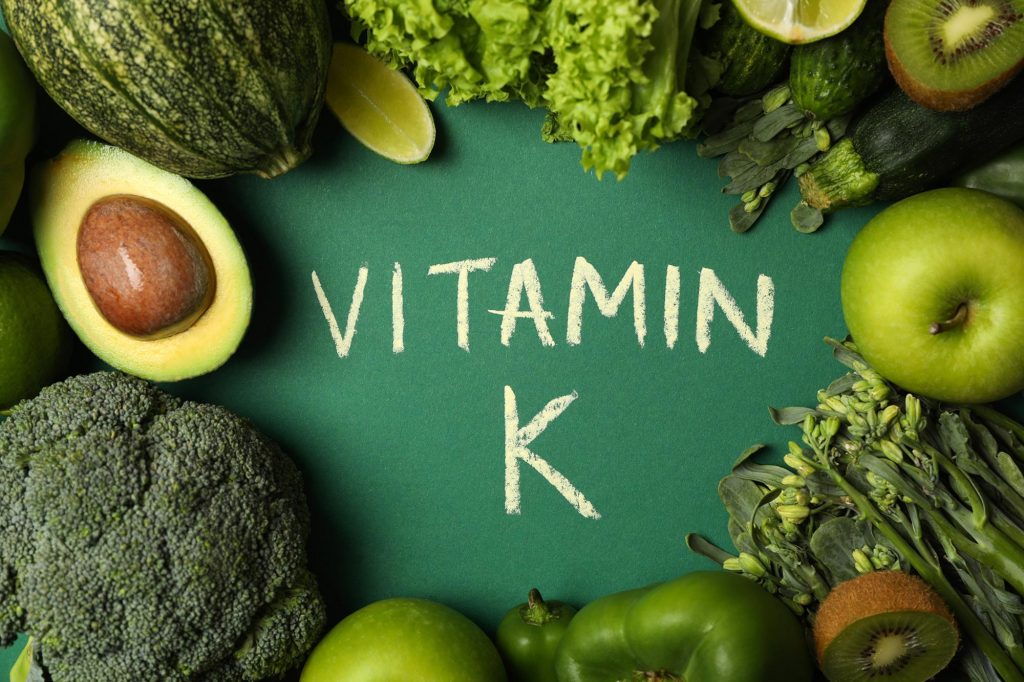
If you don’t eat enough foods that are high in vitamin K, you may develop a deficiency.
Excellent sources of vitamin K include:
- leafy green vegetables such as kale, spinach, and collard greens
- broccoli
- cabbage
- brussels sprouts
- eggs
- meat
- poultry
Summary
Vitamin deficiencies can cause easy bruising.
The most common vitamin deficiencies that cause bruising are vitamin K, vitamin C, and vitamin D.
You can prevent these deficiencies by eating a healthy diet and getting enough sunlight.
If you can’t get enough sunlight, you may need to take vitamin D supplements.
If you think you may be deficient in any of these vitamins, it’s important to see a doctor and get tested. You may also need to take supplements to correct the deficiency.


